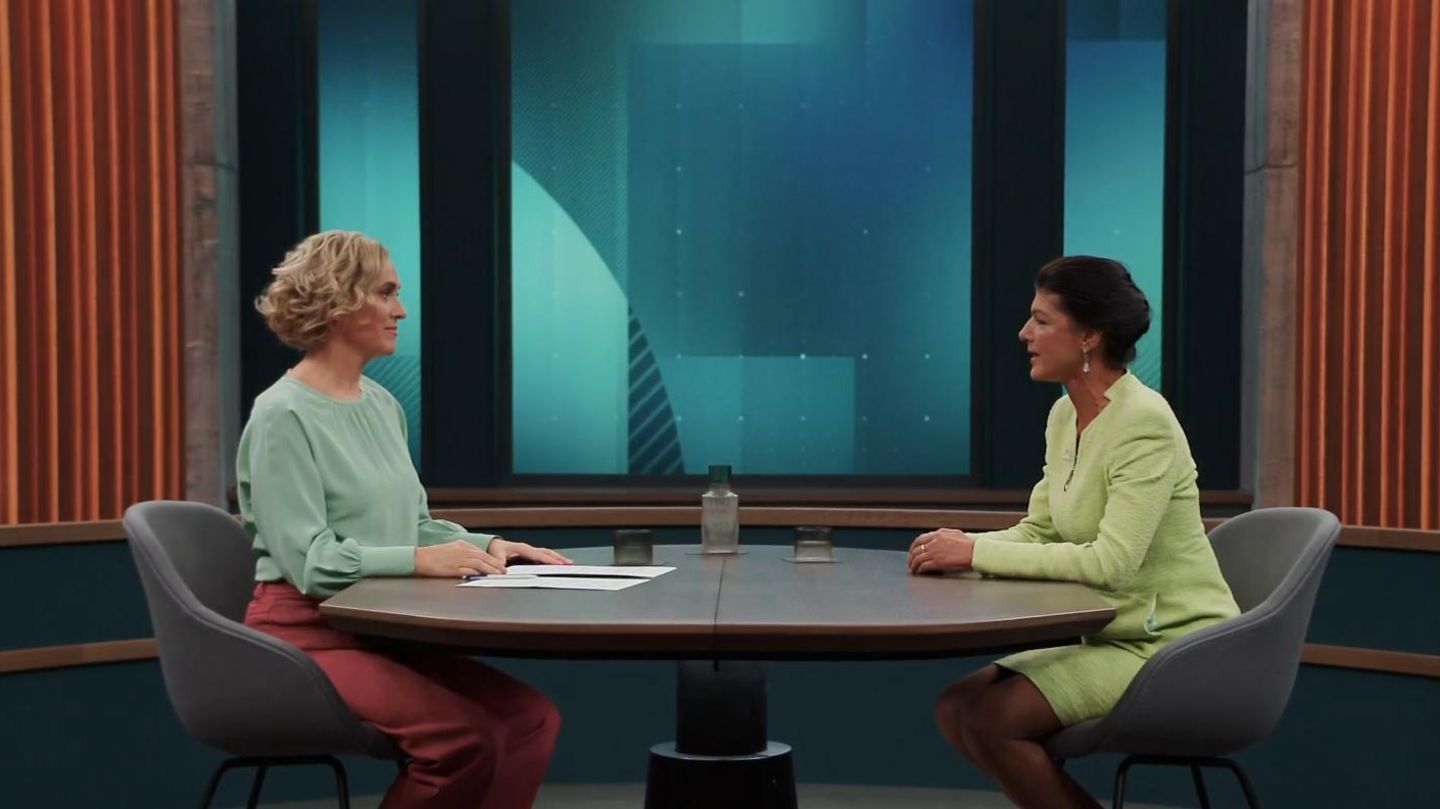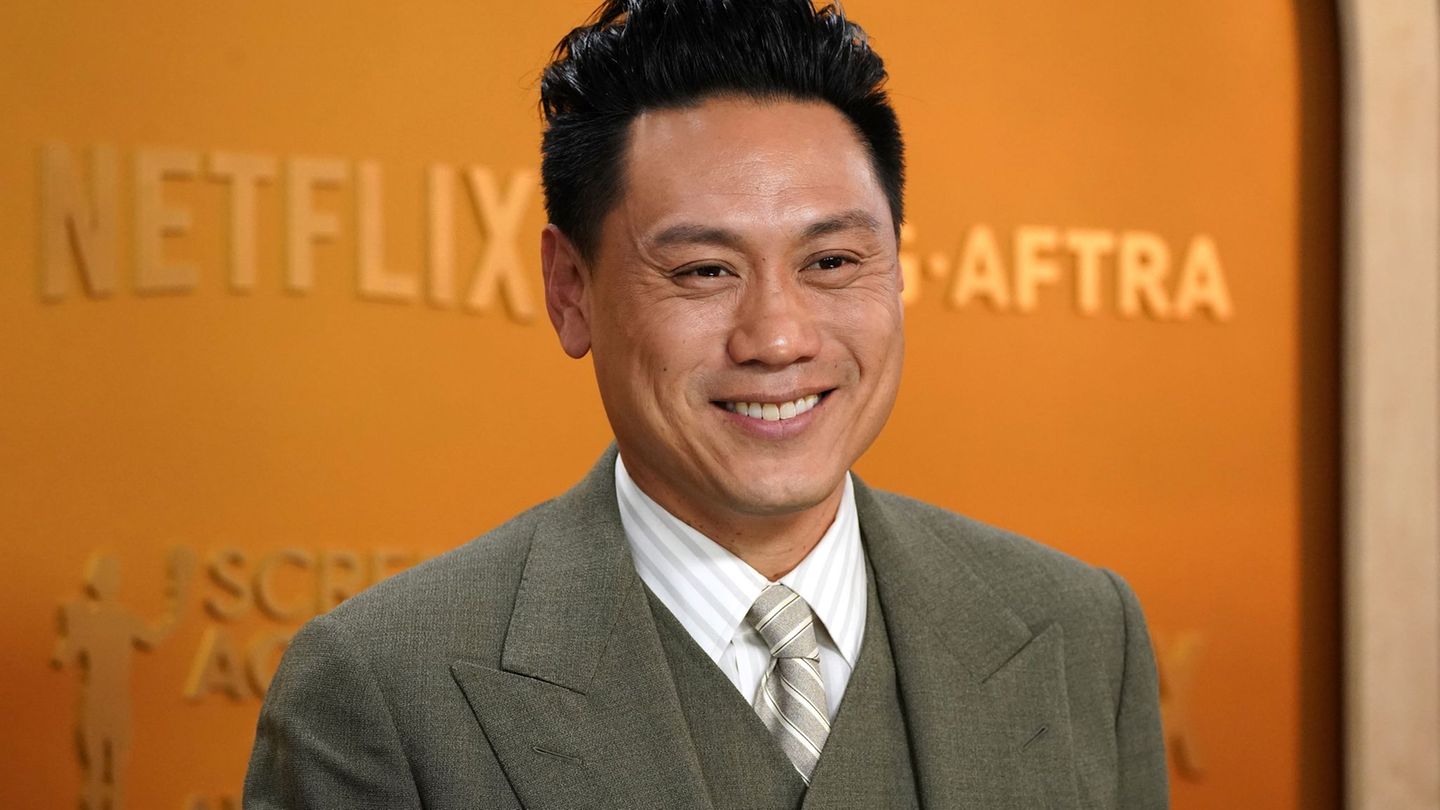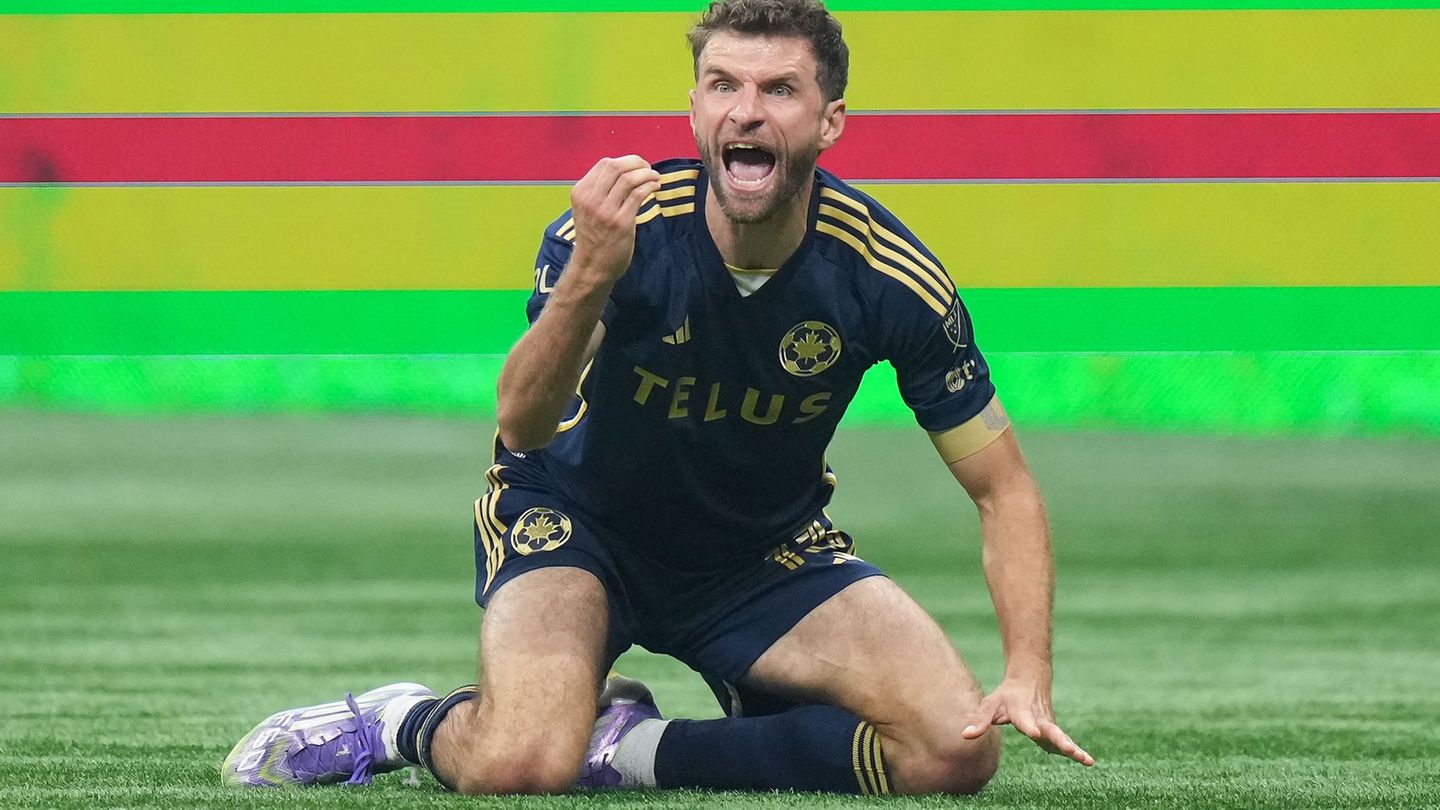Caren Miosga invited Sahra Wagenknecht to her talk show on Sunday evening. But instead of calm talks, a loud argument quickly broke out.
Suddenly Sahra Wagenknecht starts to falter. Caren Miosga’s ARD talk show on Sunday evening is actually supposed to be about whether the Sahra Wagenknecht Alliance (BSW), founded in January in Saxony and Thuringia, can and wants to enter into a coalition with the CDU. But the show quickly degenerates into a wild debate. And when talk show host Miosga asks the party leader about social policy, she goes on the defensive and falters.
Miosga, it is clear from the start, does not want to make the mistake that political talk show hosts before her have made in dealing with Wagenknecht. She wants to counter and nail the populist politician who keeps avoiding questions. She does her job better, although not without mistakes. At least: unlike in previous appearances, Wagenknecht does not usually get the chance to simply shout over the moderator and other guests and use established propaganda techniques such as framing or firehose of falsehood (this involves throwing out as many lies, half-truths or claims as possible so that they cannot all be refuted) without fighting back.
But let’s start from the beginning. After a short warm-up, the show develops into a rapid-fire discussion. It goes back and forth. And when Miosga starts talking about food banks for the socially disadvantaged, the needy or the homeless, Wagenknecht begins to falter. After the politician repeatedly emphasizes that the BSW knows what the people in Thuringia and Saxony think and that it stands up for people who have to get by without much, the talk show host wants to know: How do you find out about their living conditions?
Sahra Wagenknecht stumbles over the board
“By traveling a lot. By being there,” says Wagenknecht. “Where? Are you at the food banks?” asks Miosga. Short pause. “I’ve also been to food banks. I’ve also spoken to people who run food banks,” answers Wagenknecht. The moderator asks when she was last at a food bank. “The last time at a food bank…” Wagenknecht begins, but does not complete the sentence and then claims to have only spoken to someone “who runs a food bank” six months ago. She does not think much of politicians with photographers in tow “going to a food bank to create a mood for themselves.”
But there are many photos of her posing with medium-sized companies, Miosga counters. And not only are there no photos of Wagenknecht in hospitals or kindergartens, but no one at the social associations in Thuringia, Saxony and North Rhine-Westphalia contacted by the ARD editorial team could remember her personally visiting a facility there. Wagenknecht looks perplexed. The BSW founder listens with a stony expression and blushes slightly. “That’s not true,” she finally replies. “I talk to people. I get emails from people. People talk to me at the airport.”
CDU government with Sahra Wagenknecht – does that have to be?
05:16 min
Before that, there was a clash over Wagenknecht’s use of the term “vassal chancellor” for Olaf Scholz – a term that was already making the rounds in right-wing radical rhetoric in the Weimar Republic. Miosga wanted to know what kind of servitude Olaf Scholz was supposedly under. Wagenknecht evades the question and explains that it is about the long-range US missiles that are to be stationed in Germany in 2026 and that are “offensive weapons” and not defensive weapons. “May I ask again: whose vassal is Olaf Scholz?” the talk show host asks. “Those who have an interest in the missiles are the USA,” says the politician. Miosga again: “Would you seriously claim that Scholz is the vassal of the United States?” Wagenknecht explains that the chancellor has “expressed relatively little backbone and stature” in his decisions over the past few years.
Here, Miosga fails to make it clear that Wagenknecht’s statements sound like Russian PR, that she is spreading false and disinformation and poisoning the debate about the Russian threat through reframing. But she nails the party leader on the subject of language: “The word vassal insinuates that Germany is not a sovereign state.” Wagenknecht: “It’s not about what Germany is. It’s about how the Chancellor behaves. Of course Germany is a sovereign state, but we do not have a sovereign government, at least in its decisions.”
Wagenknecht vs. Miosga: “No!” “Yes!”
Then the discussion gets increasingly out of hand. Miosga points out that it is also a popular method of the Reich Citizens to call the Chancellor a “vassal”. “But don’t come to me with that now,” Wagenknecht rages. “No, I’m coming to you with that,” Miosga remains steadfast: “Did you get that from the Reich Citizens or did they get it from you?” She does not read the Reich Citizens’ publications, says Wagenknecht. “But you use their vocabulary!” says Miosga. “No!” “Yes!” While the politician now finds the level “subterranean”, the moderator sees her “in the company of Höcke, who calls the CDU a vassal”.
Dangerous and divisive language remains an issue when Wagenknecht reaffirms a clip of herself from 2022 that describes the Greens as the “most deceitful and dangerous party in the Bundestag.” It is not the AfD, says the BSW founder, because the Greens are causing more damage. She lists “high energy prices” or an “economic crisis in the country.” Again, Miosga fails to correct the claims and point out, for example, the influence of Russia’s war. The fact that the AfD is causing damage in Germany in a completely different way even without being part of the government does not seem to occur to the party leader or does not bother her. “I am dealing with the fact that we have policies in the country that make people angry,” she says. Miosga accuses her of “continuing to stir up anger.”
When the other guests join in, the actual topic of the show is briefly discussed, but the discussion repeatedly degenerates into shouting. Although both Wagenknecht and Thorsten Frei, first parliamentary manager of the CDU/CSU parliamentary group, acknowledge that their parties should talk intensively in Saxony and Thuringia, the BSW head remains firm that foreign policy demands, such as no US missiles and no arms deliveries to Ukraine, must be included in a coalition agreement. And the parties do not seem to be able to find common ground on this.
BSW does not explicitly rule out AfD alliance
While Frei affirms that the stationing of US weapons is “about our security” because missiles with nuclear warheads are waiting in Russia, Wagenknecht puts himself in the Kremlin’s corner: “With these weapons, a decapitation strike could be launched against Russia because you can get deep into Russian territory without much advance warning.” That’s called deterrence, says the CDU man. “There will be an arms race. If we arm ourselves, Russia will follow suit,” Wagenknecht shouts. “No, Russia is not following suit, Russia is leading the way,” Frei yells back. “Russia has a war economy.”
Miosga tries again to tease out of Wagenknecht whether there will be a coalition and where the red line is. But the BSW boss evades the question and does not explicitly rule out an alliance with the AfD despite repeated inquiries. Frei explains that he “does not think much of” adding the BSW to the CDU’s incompatibility resolution.
Then a wild round of talks ends, which probably didn’t help the people of Saxony and Thuringia much. According to Sahra Wagenknecht, they want foreign policy changes above all – and she emphasizes this again and again. At the very end, she hastily adds: “And better schools.”
This article first appeared on ntv.de
Source: Stern
I have been working in the news industry for over 6 years, first as a reporter and now as an editor. I have covered politics extensively, and my work has appeared in major newspapers and online news outlets around the world. In addition to my writing, I also contribute regularly to 24 Hours World.




